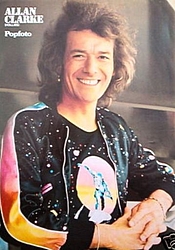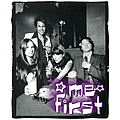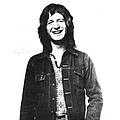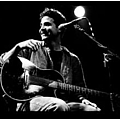Allan Clarke (born Harold Allan Clarke, 5 April 1942, Salford, Lancashire) is a retired British singer who was one of the founding members of The Hollies. He retired in 1999. He and his childhood friend, Graham Nash, began singing together in Manchester while still at school. In April 1963, they added Tony Hicks (lead guitar) (who replaced Vic Steele), along with the later additions of Bobby Elliott and Bernie Calvert (who would replace Eric Haydock on bass in 1966), became The Hollies formed in December 1962. Clarke was their lead vocalist, but also played occasional guitar and harmonica. In the UK they enjoyed 29 chart singles, 17 of which made the Top 10, with two - "I'm Alive" (1965) and "He Ain't Heavy, He's My Brother" (1988 re-issue) - reaching No. 1, the latter on re-release; it had originally been a top three hit in 1969. In the US charts they achieved 23 chart singles, six of which hit the Top 10. Many of the group’s songs were co-written by Clarke, usually with Hicks and Nash, until the latter's departure at the end of 1968. They used the pseudonym "L. Ransford" initially for their song-writing credits. Keen to launch a solo career due to Nash's success in CSN, Clarke left the group in 1971, and was replaced by the Swedish singer Mikael Rickfors formerly with Bamboo. Clarke made three albums on his own - My Real Name Is 'arold (1972), Headroom (1973), and Allan Clarke (1974). However, none of Clarke's solo works had much acclaim. Ironically, after Clarke left the Hollies, "Long Cool Woman (In A Black Dress)," a song from their 1971 album Distant Light, which he had co-written with songwriters Roger Cook and Roger Greenaway, and on which Clarke sang lead and played lead guitar, became an international hit, reaching No. 2 in the U.S. (their most successful single ever there) and No. 32 in the UK Singles Chart. However, the Hollies toured with the single instead of Clarke, despite lacking the song's distinct edge. Rickfors left the group and Clarke rejoined them in July 1973. Their first single with him back in the fold was another of his songs, "The Day That Curly Billy Shot Down Crazy Sam Mcgee," a Top 40 hit that autumn, that used the same style as "Long Cool Woman." Clarke continued to record and release solo albums while remaining with the Hollies, although his solo career did not achieve much chart or single success. His next album was [album artist=Allan Clarke]I've Got Time (1976). He also performed guest vocals on the 1977 album I Robot by The Alan Parsons Project (most notably, lead vocals on the FM-hit [track artist=The Alan Parsons Project]Breakdown). He left The Hollies for the second time in March 1978 and made I Wasn'T Born Yesterday (1978), but returned in August. Subsequent solo albums included Legendary Heroes (1979) with its UK title changed to The Only One when released in 1980. His final solo album was Reasons To Believe (1990). By this time the Hollies' UK chart career was almost over; their run of hit singles culminated with "The Air That I Breathe," No. 2 in 1974, which was followed by a long run of commercial failures, although they had several years of much-acclaimed concert tours throughout the world. The success of their live shows was captured in their album Live Hits recorded live at a two-night concert in Christchurch, New Zealand, in 1976. During Clarke's solo period, he largely relied on outside material, and was one of the first acts in Britain to champion the work of Bruce Springsteen. Clarke recorded a cover version of "Born to Run" and "Blinded by the Light." Ultimately, Clarke's record label thought the lyrics of these songs were too obscure, thus his versions did not receive much attention; his version of "Born to Run," although recorded a few months before Bruce Springsteen's, was delayed upon its release, and not released until after Springsteen's version, and "Blinded by the Light" was dropped altogether with Clarke giving Manfred Mann the go-ahead to record their own version. In this period, Clarke also used material of Lindsey Buckingham pre-Fleetwood Mac. Clarke retired from the music industry in 1999, and was initially replaced in the group by Carl Wayne, former vocalist with The Move, who then died in 2004. The Hollies continue touring today with Peter Howarth as their vocalist. Allan and The Hollies were inducted into the Rock and Roll Hall of Fame on March 15, 2010.

















